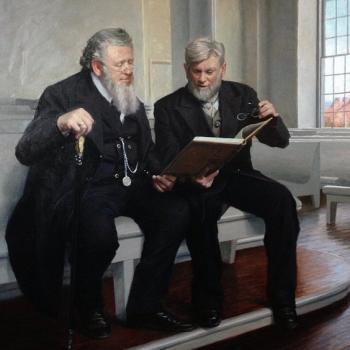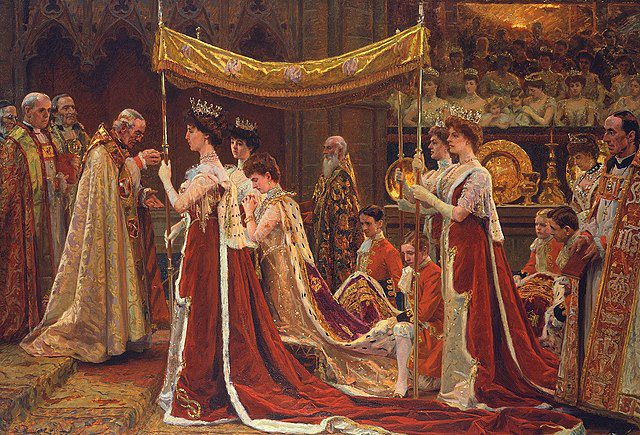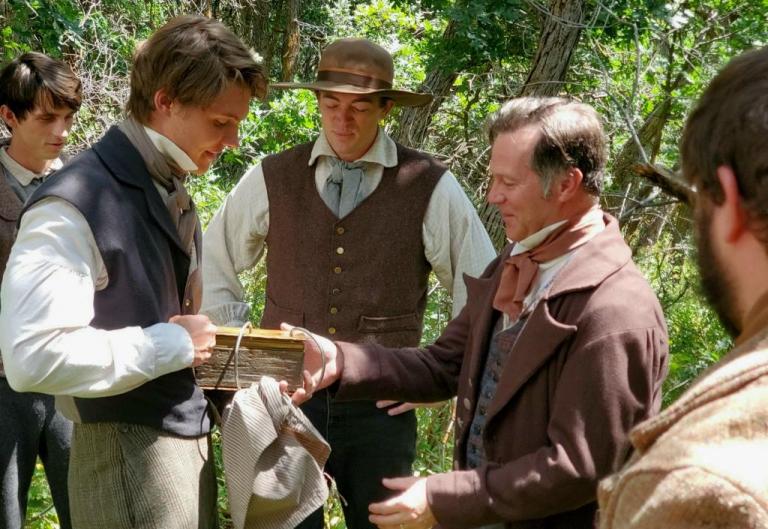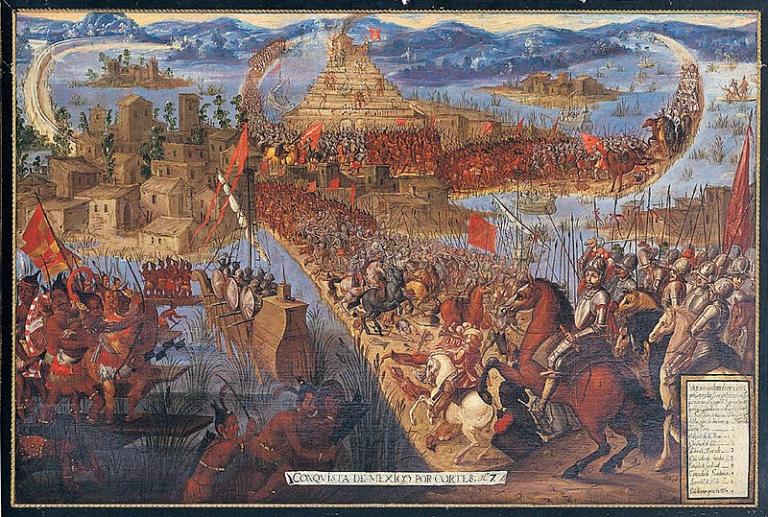
(Wikimedia Commons public domain photograph)
An extract from a conversation that occurred about two hours ago at a McDonald’s drive-through in Richmond:
Me: And we’d also like a couple of chocolate milks.
McDonald’s: A couple?
Me: Yes. A couple.
McDonald’s: Two? Three? Four? How many?
Me: Two.
McDonald’s: Okay. Then two.
Me: Yes. Two.
I found the exchange fascinating, and I want to follow up with an informal and quite unscientific survey:
What does the expression a couple mean to you? To me, it means “two.” It’s a synonym, really, for “two.” It doesn’t mean “several.” (Several means “three or more.”)
If I see “a couple” walking along the lake shore in a park, I’m not seeing a “threesome,” let alone a “group” or a “crowd.” I’m seeing two people.
Am I out in the dark on this one?
Is it, perhaps, a generational thing? (The young woman taking the drive-through orders was . . . well, a young woman.)
Is it, perhaps, a regional thing? Does a couple mean something different in Virginia or in the South from what it has always meant to me in the West, in my native California and in my adopted home state of Utah?
Could it be influenced by gender? It was, after all, a young woman. And, as a matter of fact, sociolinguists have documented some quite curious differences in speech patterns, pronunciation, and vocabulary preference that tend to run along gender lines. An example regarding pronunciation: For at least a while, anyway, there was a documented tendency among teenage and early-twenties Utah women — far less pronounced among young Utah men of the same generation — to pronounce words such as bale, tale, sail, hail, and mail as if they were written, respectively, as bell, tell, sell, hell, and mell, and to pronounce words like feel and real as homophones of fill and rill. (I never saw a study on the subject, but a linguist friend of mine told me about one.) Whether this phenomenon still exists
Could it, perhaps, even be an ethnic thing, at least in part? (The young woman taking the drive-through orders was a young black woman.)
Was it reflective merely of a personal linguistic quirk on her part? (I don’t think it’s a language quirk on my part.)
I have no idea. So I’m gathering data.
Seriously, what does the expression a couple mean to you? And, for the purposes of science, who are you? Male? Female? White? Black? Asian-American? Old? Young? Northern? Southern? Western? Rural? Urban?
Posted from Williamsburg, Virginia












